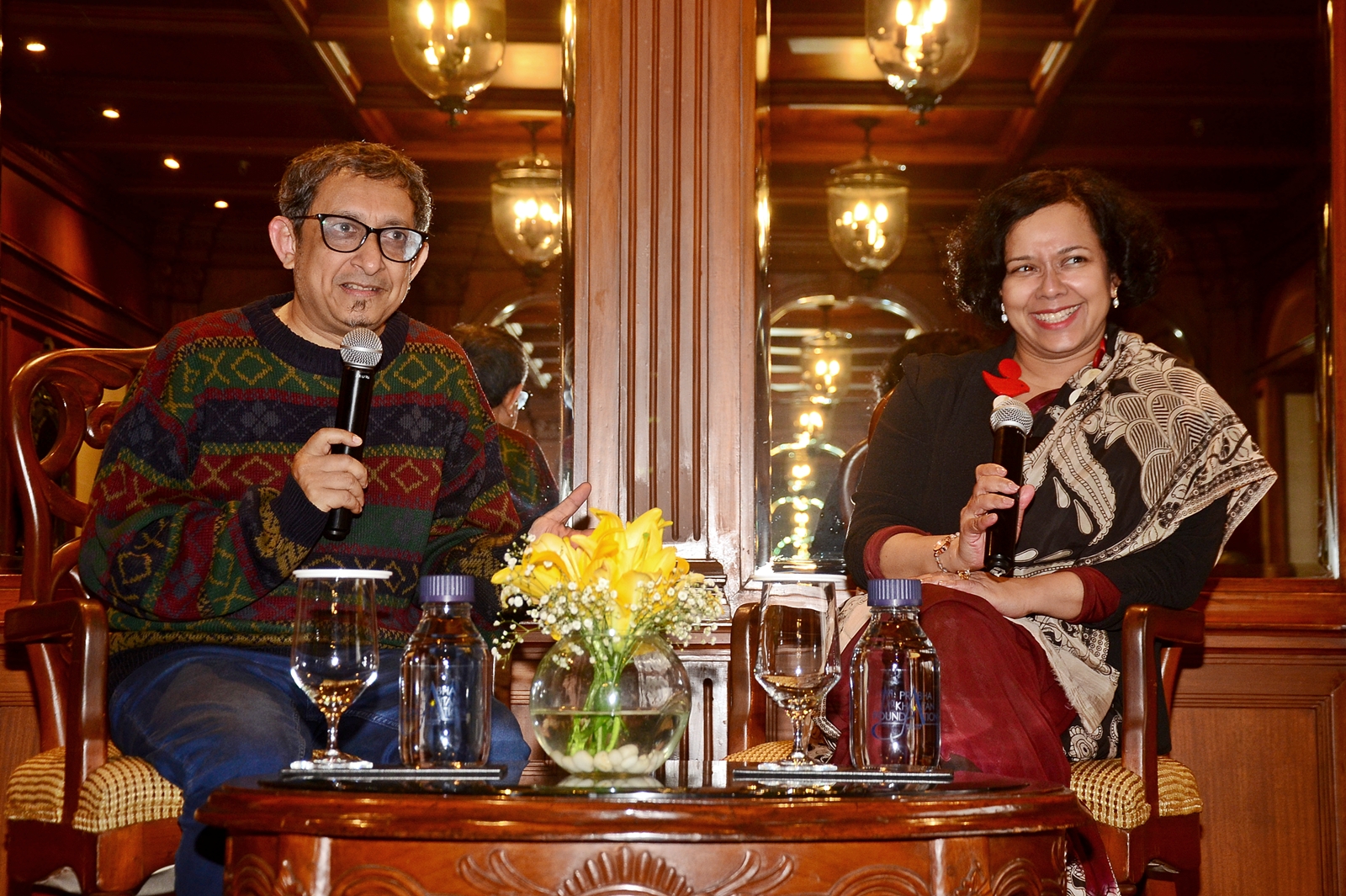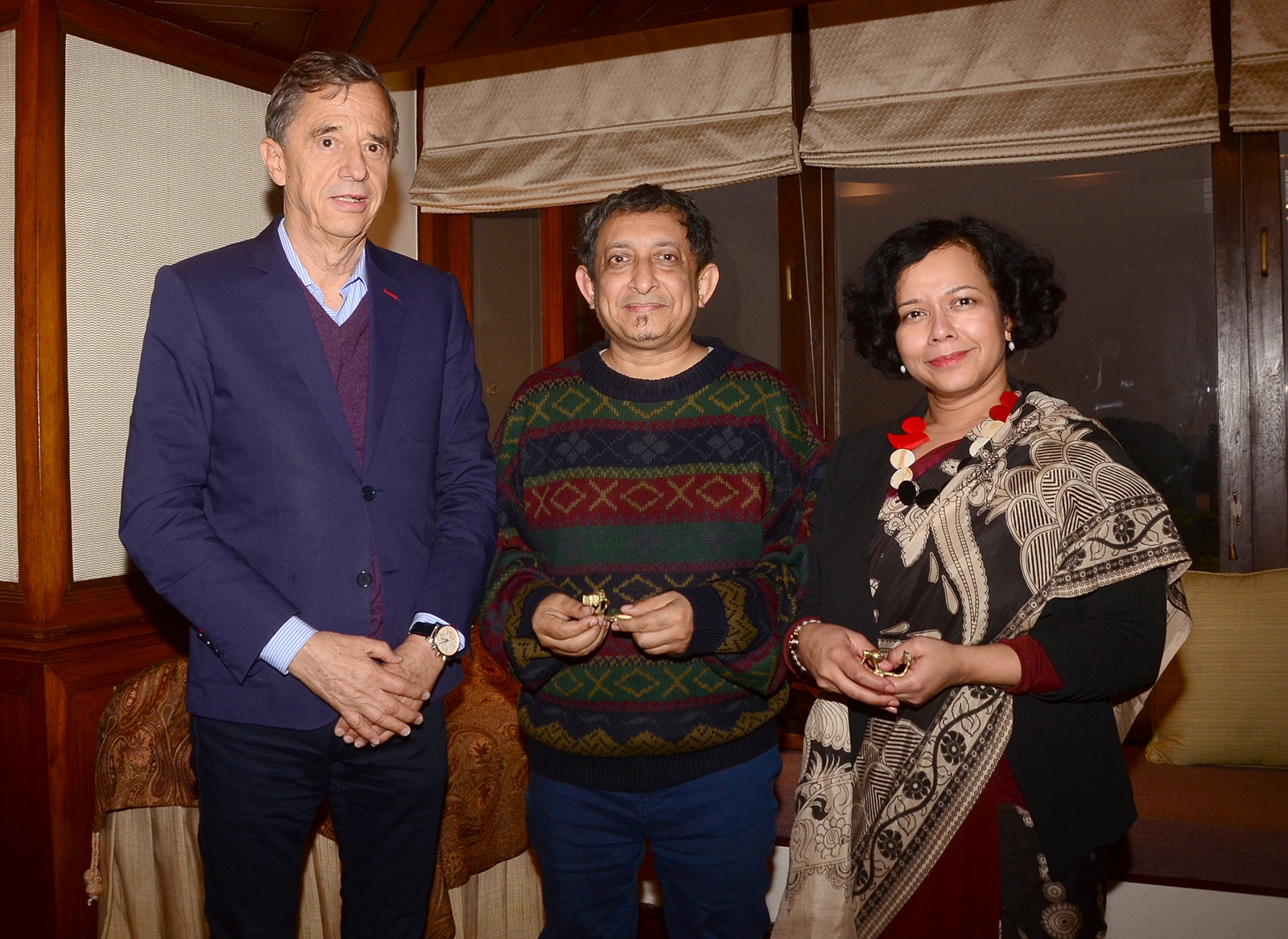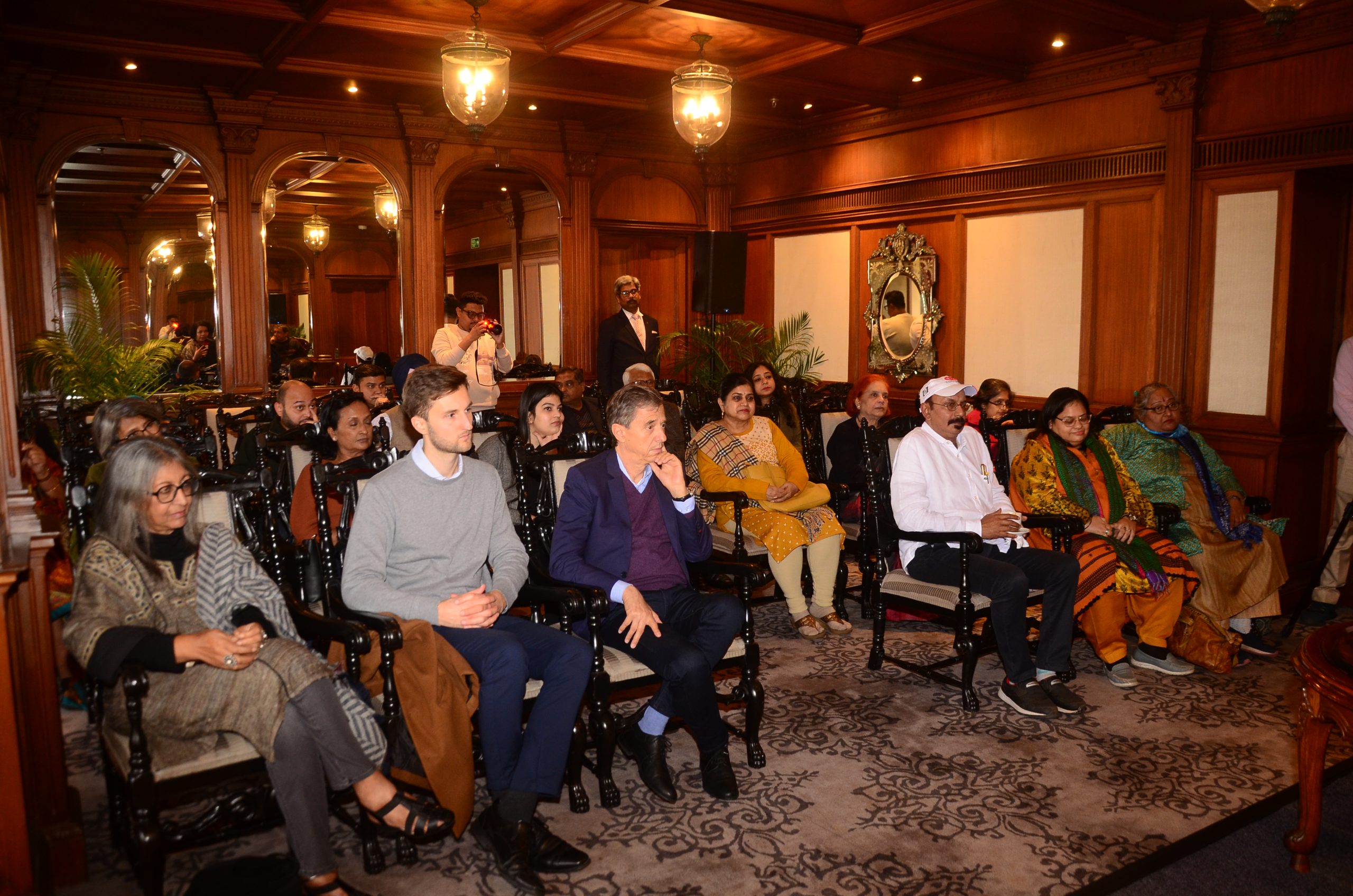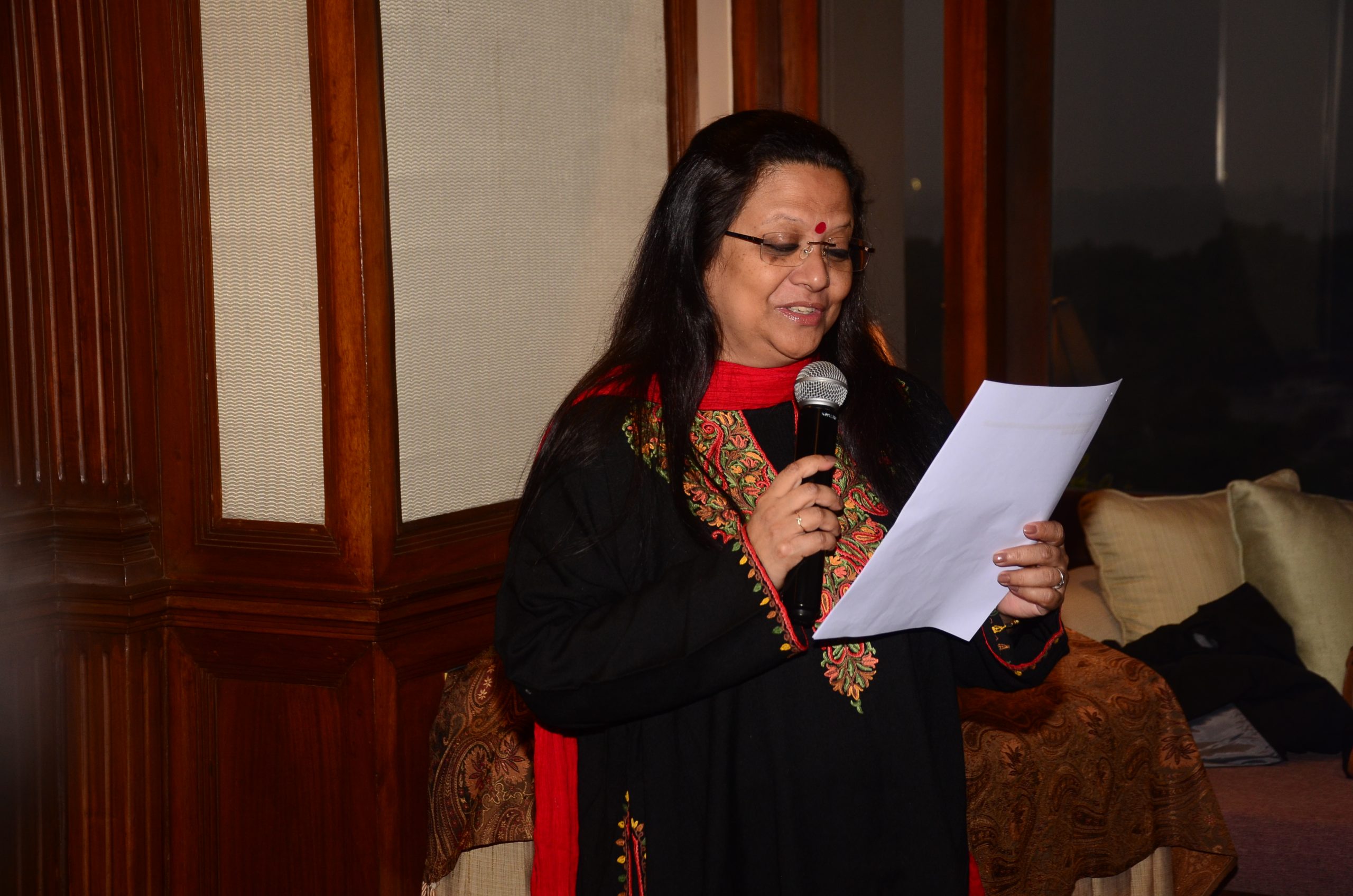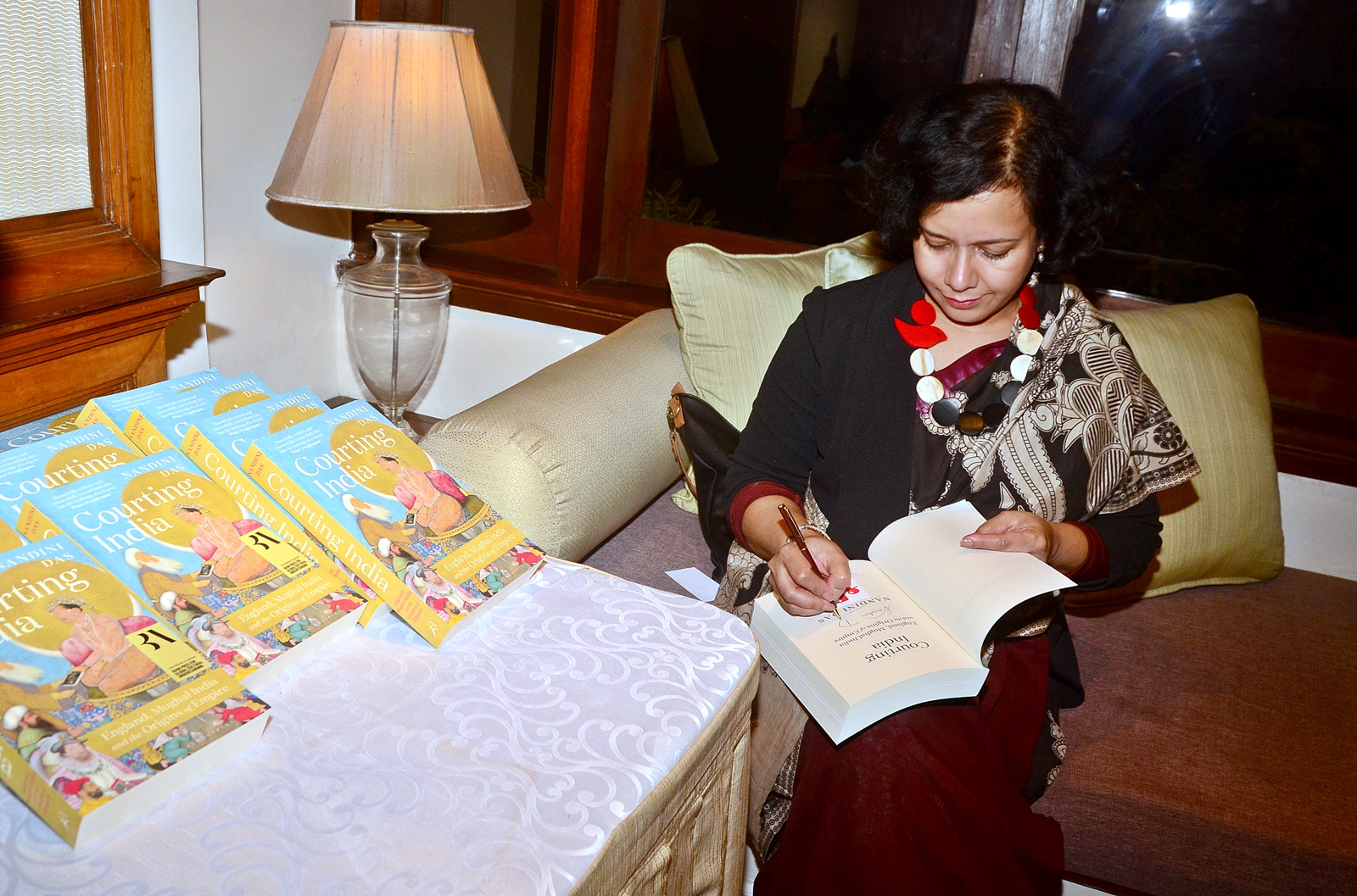A recent session of An Author’s Afternoon, organised by Prabha Khaitan Foundation, witnessed the presence of author-academic Nandini Das, who is a professor of early modern literature and culture at the University of Oxford. The author of Courting India: England, Mughal India and the Origins of Empire, Das was in conversation with Abhijit Gupta, a professor of English at Jadavpur University. After the welcome address was delivered by Arnab Chatterjee, General Manager of Taj Bengal, Kolkata, the lively discussion got underway.
Gupta initiated the conversation by reminiscing about their university days at Jadavpur, where Das and he participated in a departmental production of Shakespeare’s The Merchant of Venice, directed by Anando Lal. From Kolkata, Das went on to pursue her doctorate at Oxford, appreciating the flexible curriculum which sustained her interest in reading widely. As the conversation shifted to her books, Gupta enquired about her writing process, and whether it had changed since her very first book and her latest one. “It’s very different,” said Das, “but there were moments when I was writing this book that certain things became clearer to me about links between the two books.” Elaborating on her interest in the novel, she said, “What particularly interests me in the novel is narratology, or the way narratives are structured. One of the oldest ways in which storytelling starts is by someone setting off on an adventure. You step out of a threshold, a doorway, and that interested me a lot. So, I decided to trace it back to its earlier forms.” The earliest forms of such setting out, continued Das, was prevalent in medieval literature, with elements of romance like dragons, knights and damsels.
Delving deeper into the rise of the novel during the 16th century, Das spoke of how fiction writing came into being. “This period witnessed a generation of well-educated, newly graduated youth in London facing an economic crisis. During the late 1500s, an ageing empress, economic turmoil and limited job opportunities for these recent graduates pushed them to a limit. Frustrated by the lack of employment, they turned to writing imaginative stories of better situations in prose, marking a shift in fiction writing,” explained Das. Against the backdrop of such times, Das introduced traveller-writer Thomas Coryat. “Deeply motivated to create a name for himself, Coryat began taking bets and challenging himself to walk around Europe. People would usually bet against him, and he would successfully complete each journey, document his experiences in a book and make double the money off of it. This dual-income strategy made him one of the earliest English celebrities,” said Das. Unfortunately, betting against himself did not end well for the adventurous Coryat. Fuelled by adrenaline and wishing to outdo his previous feats, Coryat decided to walk across the land of the great Mughals, never to return or finish documenting his travels.
Serving as a contrast to Coryat and his eccentricities was another man, Thomas Roe, whose narratives inspired Das to pen Courting India. In 1616, James I sent Roe to India with the goal of establishing trade relations between the emerging British Empire and the prosperous Jahangir-ruled Mughal Empire. Roe’s appointment as the first English ambassador signalled the beginning of diplomatic ties between the two diametrically opposed societies. Through an examination of Roe’s time in India, Das’s book reveals the historical processes that were formed by the connections between two disparate civilisations. Unearthing such intimate exchanges made Das feel like a “historical eavesdropper”, she said.
When asked how she approached writing the book for general readers, Das said, “As an academician, I emphasise to my students, as I also try to uphold, the importance of our aesthetic obligation to our readers. Thus, throughout the writing process, I consciously maintained a dual awareness: I aimed to present the narrative in a manner enjoyable to my readers, while simultaneously upholding my academic rigour.”
The session concluded with an interactive Q&A session with the audience. Executive Trustee of the Foundation, Anindita Chatterjee, delivered the official vote of thanks.
Nandini Das
20th January 2024
Watch a glimpse of the conversation

